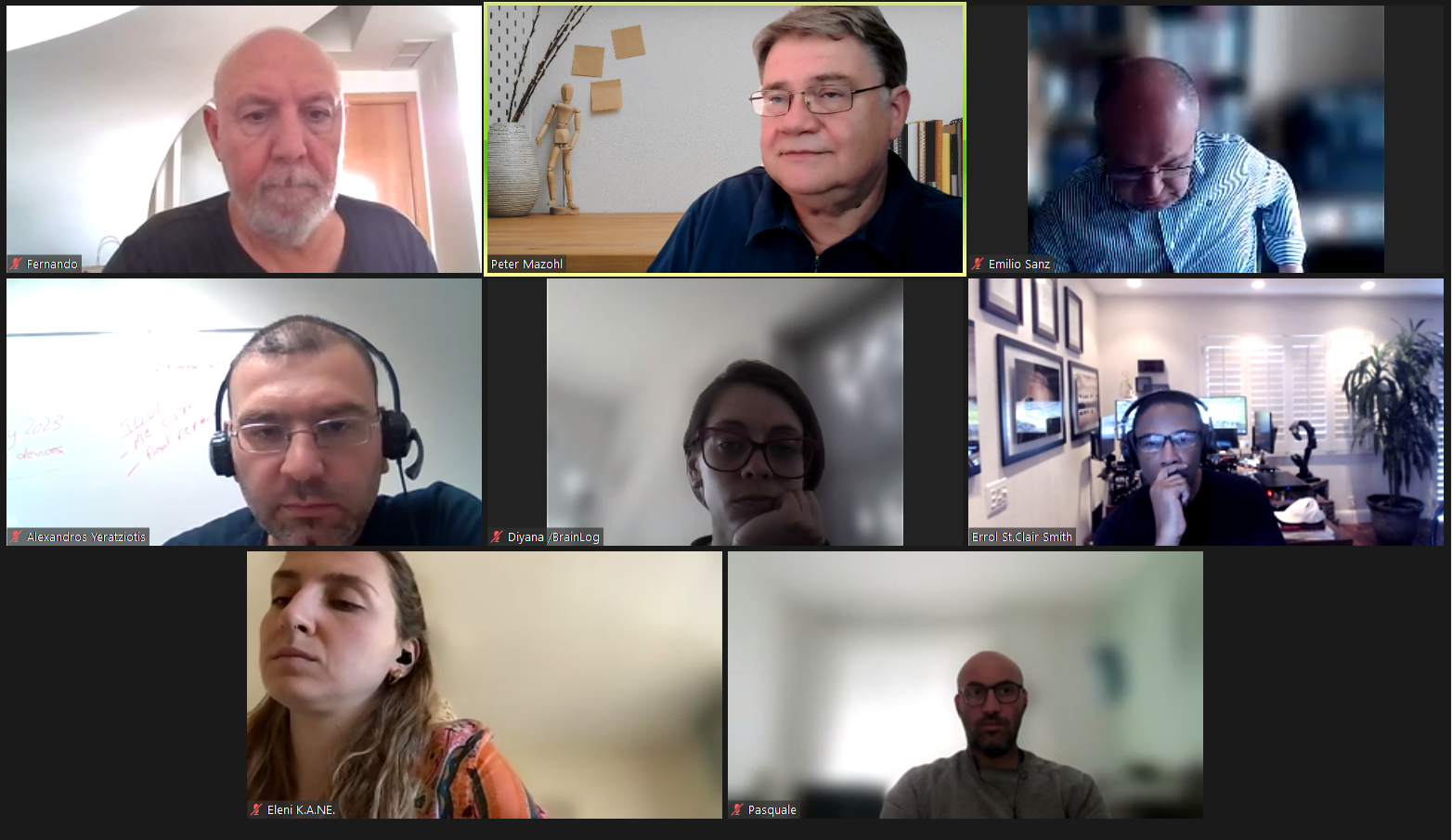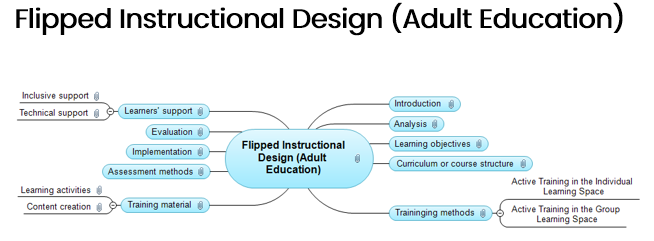The Flipped Learning 3.0 Framework is an evolution of the flipped classroom approach, emphasizing active learning and fostering student autonomy. It leverages technology to deliver content outside of class time, enabling learners to engage with materials at their own pace. In-class time is then dedicated to collaborative activities, discussions, and problem-solving, encouraging students to apply their knowledge and develop higher-order thinking skills. This framework supports personalized learning experiences, as educators can better address individual needs and preferences while promoting student engagement and collaboration.
Development of a paper describing the “Flipped Instructional Design”
The fourth team meeting cared for monitoring the current development, evaluating the work done so far, and caring for the planning of the future steps to finish the “Flipped Instructional Design”. Crucial to the development of this important outcome of the project is the meaningful integration of the “Global Elements of efficient Flipped Learning” into the instructional design.
The document is currently being developed and will be available for download at the beginning of the summer.
Significance of this document
The developed “Flipped Instructional Design” will not only be fundamental for the DigiComPass project, but will enable all people developing learning and training courses to draw on a sound and tested framework.
It will be a further step to implement training based on Flipped Learning 3.0 in a wider community.
Discussions & Decisions
During the meeting, the various impacts of the partners were brought to a constructive level and led to the further tasks in the development.

Partners in the meeting: Fernando Benavente (IFESCoop, ES), Peter Mazohl (EBI, AT), Emilio Sanz (IFESCoop, ES), Alexandros Yeratziotis (University of Cyprus, CY), Diyana Todorova (BrainLog, DK), Errol St. Clair Smith (FLGlobal, USA), Eleni Pistola (K.A.NE., GR), and Pasquale Venditti (Prometeo, IT).

